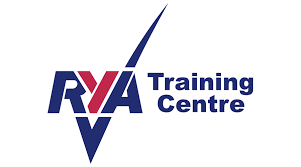The RYA day skipper practical is for aspiring skippers with some yachting experience and basic navigation and sailing skills.
 Learn to skipper a short passage with the instructor on hand to give advice and encouragement and ensure your safety. The RYA day skipper practical lets you experience being in charge, taking credit when it all goes well and being responsible when it doesn’t.
Learn to skipper a short passage with the instructor on hand to give advice and encouragement and ensure your safety. The RYA day skipper practical lets you experience being in charge, taking credit when it all goes well and being responsible when it doesn’t.
Once you have an RYA day skipper course completion certificate you can obtain your ICC (International Certificate of Competence).
Learn more about our rya sailing courses joining your boat, living on board and what to bring.
Duration
a 2 day and a 3 day weekend
Previous Experience
RYA training at the level of competent crew or 5 days, 100 miles, 4 night hours on board a sailing yacht
Assumed Knowledge
Basic navigation at RYA day skipper theory level.
Minimum Age
16
Ability After the Course
Course Content
Preparation for sea
– Is able to prepare a yacht for sea, including engine checks
– Selection of sails, securing and stowage of all gear on deck and below.
Deck work
– Can reef, shake out reefs and change sails to suit prevailing conditions.
– Can prepare an anchor and mooring warps
– Can take charge on deck when mooring alongside, coming to a buoy, anchoring, weighing anchor and slipping from a buoy or an alongside berth.
Navigation
– Is proficient in chartwork and routine navigational duties on passage including:
– Taking and plotting visual fixes;
– Working up DR and EP;
– Use of electronic navigation equipment for position fixing;
– Use of waypoints;
– Knowledge of IALA buoyage;
– Estimating tidal heights and streams;
– Working out course to steer to allow for tidal stream, leeway and drift;
– Maintenance of navigational records;
– Use of echo sounder and lead line.
Pilotage
– Can prepare and execute a pilotage plan for entry into, or departure from, harbour.
– Understands the use of leading and clearing lines.
– Use of transits and soundings as aids to pilotage.
Meteorology
– Knows sources of forecast information.
– Can interpret shipping forecasts and use a barometer as a forecasting aid.
Rules of the road
– Has a working knowledge of the I.R.P.C.S.
Maintenance and repair work
– Understands and is able to carry out maintenance tasks.
– Knows the properties and uses of common synthetic ropes.
Engines
– Knows how to change fuel and water filters, pump impeller and how to bleed the fuel system.
Victualling
– Understands how to victual a yacht.
Emergency situations
– Is able to take correct action as skipper for recovery of man overboard.
– Understands distress flares and how to use a liferaft.
– Can operate a radio telephone and send a distress message.
– Understands how to secure a tow.
– Understands rescue procedures including helicopter rescue.
Yacht handling under power
– Can bring a boat safely to and from an alongside berth, mooring buoy and anchor under various conditions of wind and tide.
Yacht handling under sail
– Can bring a boat safely to and from a mooring buoy and anchor under various conditions of wind and tide.
– Can steer and trim sails effectively on all points of sailing.
Passage making
– Can plan and make a coastal passage, taking account of relevant navigational hazards and limitations imposed by the type of boat and strength of the crew.
Course Dates and Locations
Please see course calender for where and when we are running this course, view availability and secure your place through our booking system. Alternatively, you can call us on 1300 944 974 and make your booking by phone. If your chosen course is not running at the base or at the time you want, or for group bookings, please email us.













